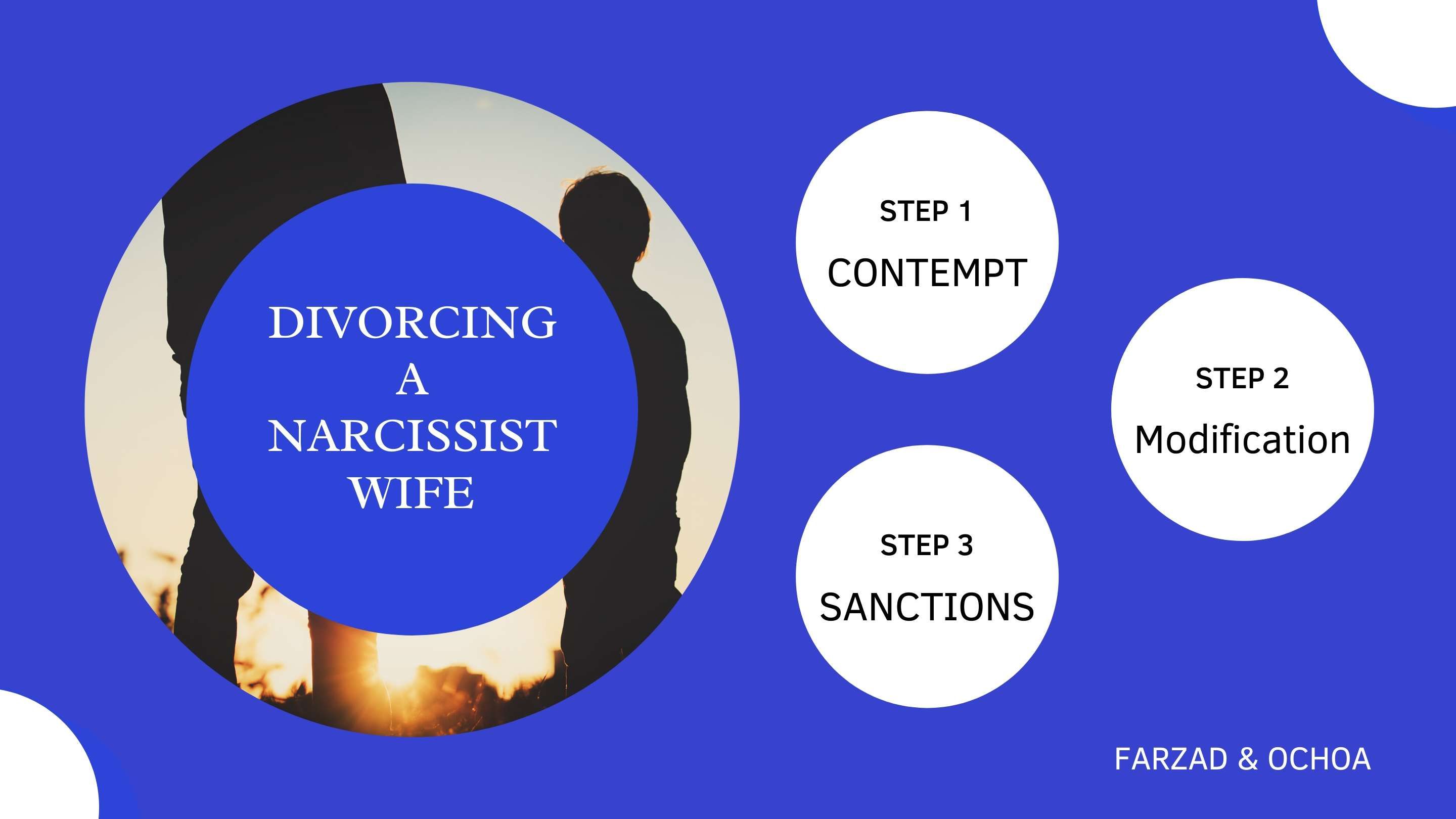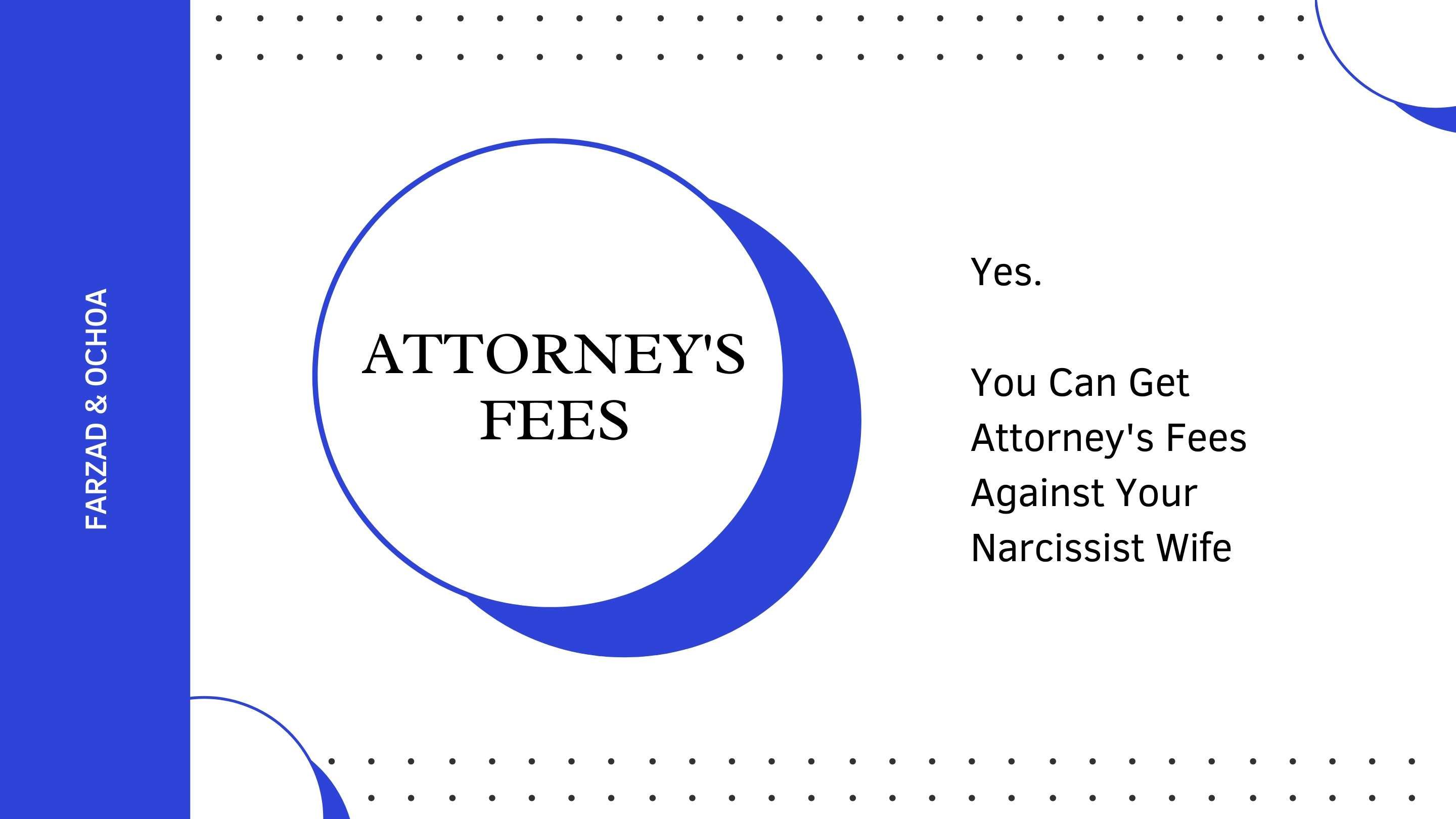Divorcing a Narcissist Wife Takes Diligence and Patience
We wrote the article on divorcing a narcissistic husband and promised you a part II. This is part II of our Divorcing Narcissist articles, and this article focuses on the option available to the husband who is divorcing a narcissistic wife.
For this article, we will assume the husband is the higher-earning spouse. We realize income is not gender-based. Everything we write here for husbands will apply to help wives if they are the higher-earning spouses.

Divorcing a Narcissistic Wife Who Use Children as Leverage
Contested California child custody cases can become contentious. Wives who are frustrated or wish to take their anger out on their husbands often use the children to punish the other spouse. This can manifest itself in several ways, including:
- interfering with their husband's custodial rights,
- interfering with their parenting time,
- using alienation and conditioning tactics,
- making false allegations of child abuse, or
- false allegations of domestic violence and involving the children in the custody litigation.
Contempt is an Effective Remedy
Interference with legal custody rights, including the noncustodial parent's rights that violate a court order, is punishable by contempt. Contempt requires filing a petition that brings the violation to the court's attention. The punishment for contempt can be jail time, fines, and community service.
Contempt should be used in more serious cases, not every time there is a disagreement between the parents or a non-substantive violation of a court order. Contempt cases can be time-consuming because they involve potential criminal consequences and, therefore, have to go through a formal arraignment, pretrial, and trial process.
For serious violations, they are worth it. Since lower earning spouses who engage in misconduct often believe they have "nothing to lose" as a result of their misconduct, a contempt "order to show cause" definitely gets their attention and puts them on notice that the other spouse is not going to sit idly by and let violations of court order to occur.
- B. Robert Farzad, Managing Partner
Seeking a Custody Modification
You combat alienation, conditioning of the children, or false allegations of abuse by a request for modification of custody and visitation. It is not in the children's best interest to have significant parenting time with a parent engaging in any misconduct.
Parents who engage in this misconduct also cause serious emotional abuse to their children and further cause damage to the other parent's relationship with the children. California family Law appellate cases have ruled that parents who make false allegations of abuse or engage in alienation or conditioning of their children should lose parenting time and joint legal rights to protect the children.
What Steps Should You Take to Modify Custody?
First, document the misconduct. Your divorce attorney should do this with your spouse's lawyer, and you should keep a journal of the misconduct.
Second, identify witnesses to the misconduct and inform your attorney so he or she can interview the witnesses and obtain statements from them.
It will fester if you fail to act and allow the alienation and conditioning to continue. Once the children are alienated from you, it can be difficult to get them back. Children sometimes need psychological counseling to assist them after years of parental alienation.
Bringing the Attorney's Fees Request

"But my spouse doesn't work. How can I get attorney fees?"
We hear this question often, and even family law lawyers share this misconception. Our answer with a rhetorical question is, "Who said attorney's fees are limited to earnings?"
Your Narcissistic Wife's earnings or Lack of it Do Not Control
California law does not limit attorney's fee awards, especially Family Code 271 awards, to earnings. Do any of these exist in your case?
- A home with equity,
- Money in the bank or with other financial institutions,
- Stocks,
- A potential buyout of a business you operate,
- Personal property of value or an expected buyout, or
- Other money that may be coming to your spouse in the divorce.
These can be used to pay the attorney's fee and sanctions award. Even spousal support may be used to award attorney's fees under certain circumstances.
An Example of How You Get Sanctions
For example, let's say you have $300,000.00 in equity in a community residence. If your wife is entitled to half of that, you use that as a basis for awarding sanctions against your spouse. Do you think your spouse, the lower-income earner, will think twice before using the children as leverage or engaging in misconduct, knowing she may pay for it through her equity share? This is just one of several examples.
What If There Are Few Assets?
But let's say there are few assets. What then?
Is your spouse seeking spousal support or getting it?
Has she made an attorney's fee request, or do you expect one?
You request an "offset" of each as the sanction against your spouse. That will not only get your narcissist spouse's attention but will also get his or her lawyer's attention, who may have been counting on that attorney fee award to be paid the fees your narcissist spouse owes him or her.
Your Next Best Steps Toward Representation
Do you need to talk to one of our lawyers who is experienced in dealing with a narcissist? We have offices throughout Southern California. We offer an initial strategy session and look forward to hearing from you.
Your Strategy Session
About your strategy session
Southern California Offices
Locations
Our Services and Fees
Frequently asked questions
Strategy sessions are designed for those who are serious about their family law case, want to make informed and intelligent choices, and seek result-focused representation.
